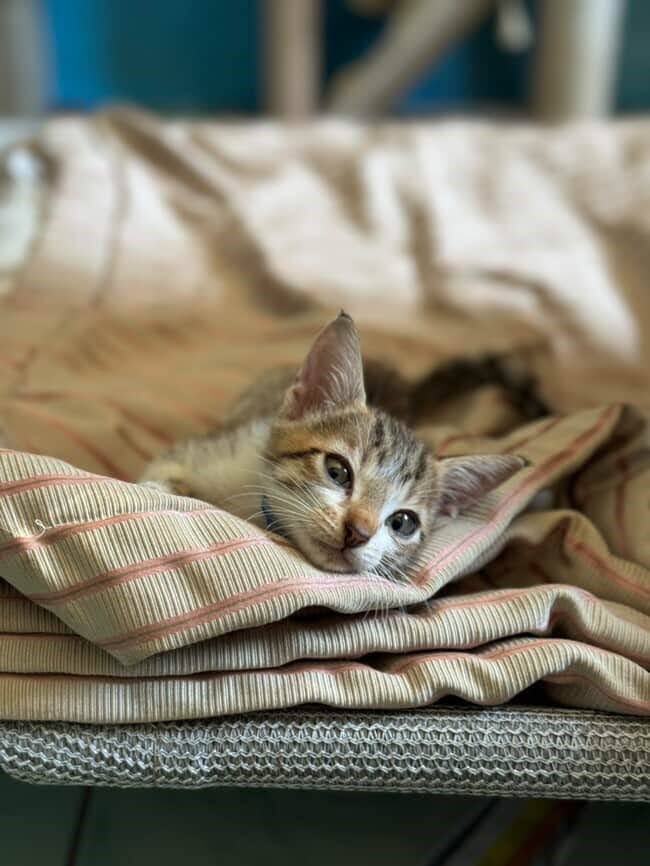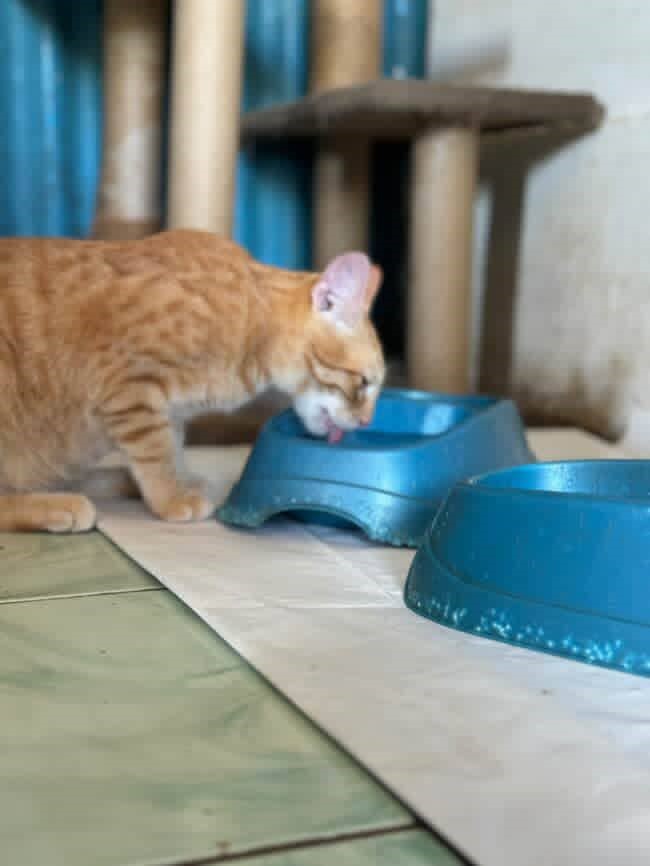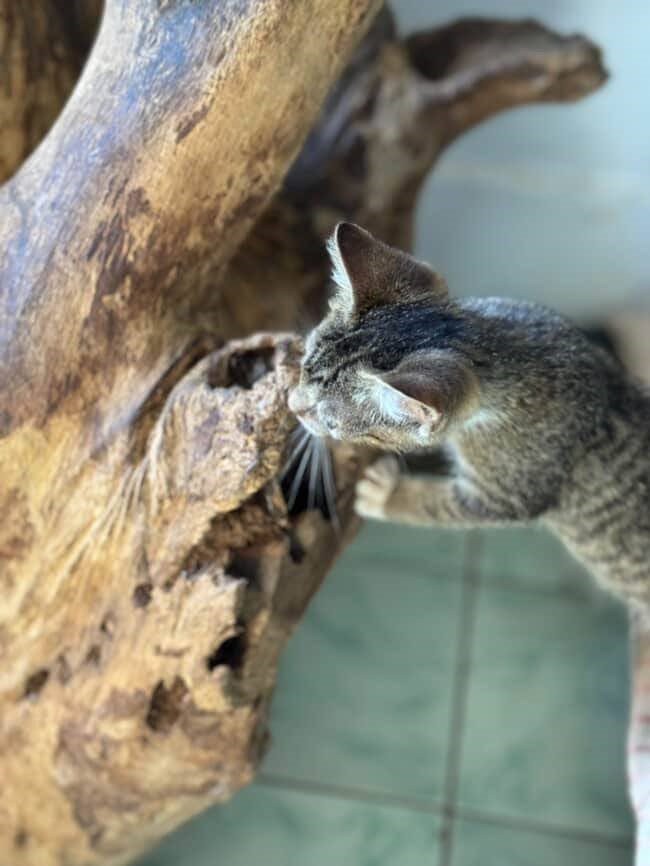Many people assume cats are low-maintenance pets compared to dogs — but that’s not always true. Some cats are very social and thrive on affection and playtime, while others prefer their independence and alone time. Every cat is unique, so it’s important to pay attention to their personality and body language. By watching how they interact with you and their surroundings, you can figure out what makes them happy and comfortable. Like dogs, cats have basic needs to stay healthy and happy: a nutritious diet, fresh water, a safe and stimulating environment, regular grooming, exercise and play, and routine veterinary care. Here’s what you need to know to give your cat the best care possible:
How to Feed Your Cat
In Fiji, many people feed their cats home-cooked meals — and that’s fine, as long as it’s balanced and includes meat. Cats are obligate carnivores, meaning they must eat meat to stay healthy. Aim for about 80% protein (like cooked meat, fish or eggs) with a small portion of carbohydrates (like rice, bread or potatoes) and some vegetables for variety. If you have access to dry or canned cat food, it’s fine to include it, but it’s not essential.

Never Feed Your Cat
- Cooked bones (fish bones, chicken bones, pork bones — they can splinter and cause serious internal injuries)
- Chocolate, coffee, onions, garlic, grapes, raisins, or nuts — all of these are toxic to cats
- Cow’s milk or dairy — many adult cats can’t digest it and it can upset their stomach
- Tinned tuna meant for humans — it can lead to nutritional imbalances over time
Feeding Schedule for Kittens
- 6–12 weeks: 3–4 small meals per day
- 12–16 weeks: 2–3 meals per day
- Over 3 months: 2 meals per day
All cats love the occasional treat, but don’t let treats become their main food. Also, avoid overfeeding — obesity can lead to serious health problems. If you have more than one cat, feed them in separate bowls spaced apart to avoid fights.
Fresh Water
Cats need access to clean, fresh water at all times — especially in Fiji’s hot climate.

Cat drinking water
Safe and Healthy Environment
Cats are naturally curious and can get into trouble, so keep harmful objects and substances out of their reach. If your cat lives indoors, make sure windows and balconies are secure. If your cat goes outside, try to keep them in at night to protect them from fights, predators, and accidents.
Grooming Your Cat
Regular brushing keeps your cat’s coat healthy, reduces shedding, and prevents painful mats — especially in long-haired cats. Most cats enjoy being brushed, and it’s also a great way to bond with them.

Cat’s naturally groom their nails and mark territory through scratching. Providing a scratching post if the cat is kept indoors avoids them using your furniture as one.
Play and Exercise
Cats are hunters by nature. Play helps keep them active, sharp, and happy. Hide treats in toys, dangle a fluffy string, shine a torchlight for them to chase — anything to keep their mind and body busy. A scratching post is a must — it satisfies their need to scratch and protects your furniture. You can make your own by covering a sturdy tree stump or post with carpet. Some indoor cats can even be leash-trained, allowing them to explore safely outdoors.

Curious kitten. Cats need places to hide and feel safe.
Vet Care
One of the most important things you can do for your cat is to have them desexed. This not only prevents unwanted litters but also improves their health and reduces roaming, fighting, and certain cancers. Make sure your cat stays up to date on vaccinations, flea and tick prevention, and dental care. If you live remotely, you can arrange a phone or video consultation to get advice. If you notice anything unusual about your cat’s health or behaviour, contact a vet as soon as possible.

Adopting a Cat
Adopting a cat at Animals Fiji means giving a loving home to a deserving feline while making a real difference in the local community. Each cat in our care is healthy, vaccinated and ready to bring joy, companionship, and purrs into your life. Come meet your new furry friend and experience the special bond that only adoption can bring. Otherwise, you can still help by donating supplies or sponsoring a cat in need. Animals Fiji operates clinics in Savusavu, Labasa, Nadi, and Lautoka, and regularly runs outreach programs across the country. If you want to support Animals Fiji in their work or to find out more about Animals Fiji’s services, contact their Savusavu Clinic at 998-6253, Labasa 998-6250, Lautoka 998-2026 or Nadi Clinic on 993 6647 or visit their website at www.animalsfiji.org